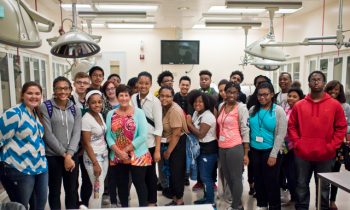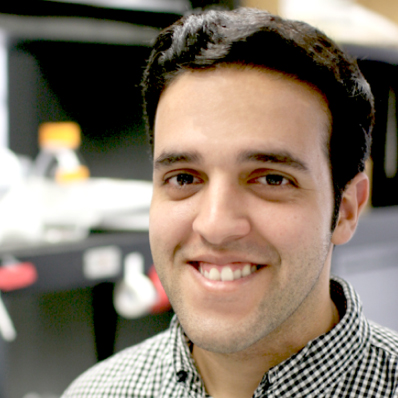Matheus Victor, doctoral student, School of Medicine
Growing up in Brazil, I was considered white. Even on my birth certificate my race is listed as white. It wasn’t until I moved to St. Louis that I realized that being white in Brazil didn’t make me white in America.
My family moved to Florida when I was a teenager, and I attended a predominately Hispanic high school in which Caucasians were the minority. After graduating from college in Florida, I moved to New York and lived in a mostly Latino neighborhood. When I started graduate school at Washington University in St. Louis, my race — for the first time in my life — made me stand out.
Suddenly, I was the student representative for all things Latino. At first, I couldn’t help but think that surely they could find someone else better suited for this role. After all, I was a really lousy Latino. I speak Portuguese, not Spanish; I’m not a great soccer player; and I don’t even know how to salsa.
But with time, I started to grow into the role and understand my responsibility as a minority in the fight for racial equality. I became the president of the Graduate Association of Latin American Students (GALAS) in the university’s Division of Biology and Biomedical Sciences (DBBS). And with the support of my peers and the DBBS Office of Diversity, the group began to advocate for Latino students and joined forces in the many ongoing efforts to diversify our university’s scientific community.
In June, GALAS joined student leaders from the Association of Black Biomedical Graduate Students (ABBGS) to organize the Junior Scientist Institute (JSI). The annual training initiative provides opportunities for middle and high school students from underrepresented backgrounds to spend a day at the School of Medicine, participating in scientific activities and interacting with graduate and medical students from similar backgrounds.

This summer, JSI hosted 23 high school students from the Washington University College Prep Program, directed by Leah Merrifield, assistant vice chancellor for community engagement. My colleague Jabari Elliott, the president of ABBGS and a PhD candidate in biochemistry, said of the program: “The key focus was to prove to them that science is accessible to everyone, regardless of ethnic or financial background.” I believe we proved just that.
Participants toured the Washington University Institute for Minimally Invasive Surgery and the McDonnell Genome Institute, were introduced to careers in biomedicine, and participated in live, scientific demonstrations. The students even performed DNA extractions.
At the end of the day, as we thanked the students for participating, I offered to help interested students find additional opportunities to gain research experience. Two students seated in the front row looked at each other and gasped. Sure enough, both emailed me the next day, holding me true to my offer. I met with them a week later to discuss their interests in science and help them prepare their resumes so they could apply for volunteer positions in laboratories at the School of Medicine. I also had the privilege of meeting their parents and talking with them about my path into scientific research, which also began with a volunteer position in a research lab.
To all of us involved in JSI, the program is a means to reach young, minority students and spark their interest in science. But to some of the participants, it may very well mark the beginning of their scientific careers.
I entered graduate school to earn a PhD in neuroscience, but graduate school also has given me a voice and a platform to help and inspire others, to find my passions, and to gain social consciousness. We each have our paths, and the issues that affect us may be different, but no deed is too small if everyone is contributing to improve the world we live in.
Matheus Victor is a National Science Foundation fellow, an Edward A. Bouchet fellow and a PhD candidate in neuroscience at Washington University School of Medicine.
Editor’s note: The partnership between the College Prep Program and the Junior Scientist Institute was orchestrated by the Washington University chapter of the Edward A. Bouchet Graduate Honor Society, which through its fellows promotes service and advocacy for students who have been traditionally underrepresented.
